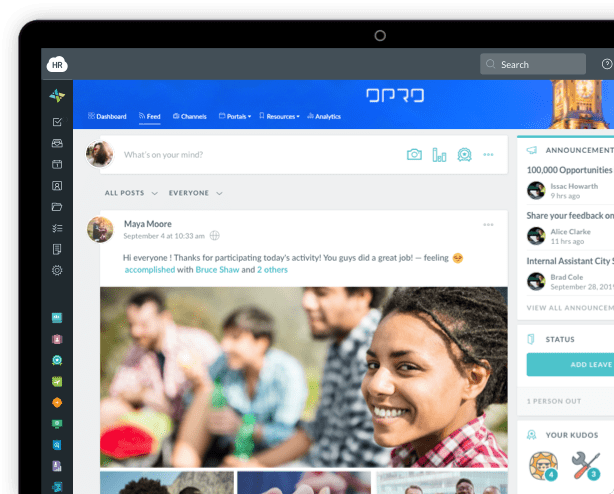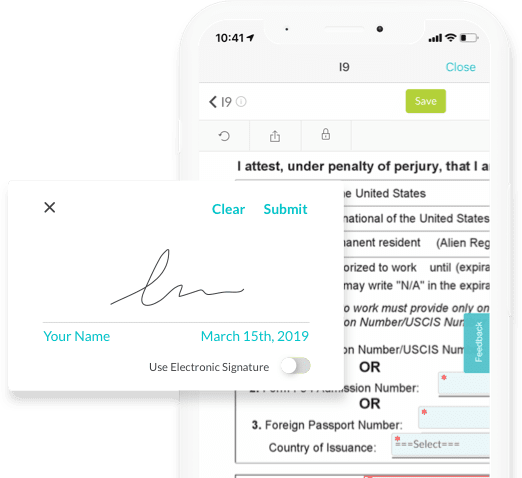5 Unique Ways to Create a Strong Company Culture In A Remote Environment

In the last few years, remote work has taken precedence over in-office work in a way that was never expected.
In early 2022, The Pew Research Center reported that 60% of workers want to work from home all or most of the time.
We can expect this number to increase further this year as an increasing number of employers and employees embrace the “flexibility” offered by remote work.
However, it also can’t be denied that remote work also comes with problems like miscommunication and disconnection with the team, leaders and managers. Employees can also feel disengaged and isolated. That is the reason, business owners and managers managing remote teams, developing and maintaining a strong company culture is critical.
Is Your Company's Culture
Working Against You?
culture with our short quiz.
One of the greatest ways to achieve this is to use online employee engagement apps such as Workmates, which allow employees and supervisors to connect, learn, and build a healthy company work culture.
Let's talk about corporate culture, how it can help your remote employees connect better, and how you can provide this culture to your employees who work from home.
What is company culture?
Ask 10 different people what company culture is and you’ll get 10 different replies.
However, at core, the company culture can be defined as the sum total of all formal and informal processes, behaviors, and values that create an experience for your workforce and customers.
Company culture can be felt by everyone who works and even visits your organization.
For instance, you walk into a company as an outsider and its employees greet you with a warm smile and a firm handshake. You can instantly feel a distinct, positive energy, and you get a fair idea of how things “work” there.
You’ve understood what company culture is, now we’ll have a look at its benefits.
Why company culture matters?
Let’s take a look at some statistics that underline the importance of company culture in today’s dynamic work environment.
86% of job seekers avoid companies with a bad reputation, and a culture that attracts high-caliber employees leads to a 33% revenue increase.
It’s evident that a strong company culture paves way for the organization’s success.
Here are a few substantial benefits of a good company culture for both employers and employees alike.
Increased productivity
Happy, engaged employees are more productive than others. A strong company culture makes employees feel valued and they work with a greater sense of fulfillment and job satisfaction.
When your employees’ goals and organization’s objectives are aligned, they display more passion and commitment that shows in the form of better quality work, increased productivity, and consistency.

Decreased turnover
Retaining highly skilled employees has become more of a challenge for today’s organizations. If people don’t feel valued and recognized, they switch jobs.
On the other hand, a good company culture recognizes and rewards top performers, which helps reduce the staff turnover as they feel a sense of belongingness, shared accomplishment, and a shared community.
Turns employees into advocates
When employees feel connected to an organization and team members, they are likely to be your brand’s best “word of mouth” advocates. They will invite other skilled professionals they know to come and work beside them. Highly satisfied employees not just contribute to your company culture but also advocate it both internally as well as outside the organization.
Makes recruitment easier
Your company culture is something that’s noticed even by job seekers, and they’ll consider it while making the final decision. They can sense your culture even during the interview. So, to keep their interest, prioritize building an organizational culture that leaves a strong first impression on your potential employees.
Effective onboarding
Effective onboarding is one of the best ways to ensure new employees get familiar with the core values and mission of their business.
Onboarding practices such as training, orientation, and performance management programs enable new employees to access the right resources and make a smooth transition into new job roles and responsibilities.
What if you have an automated online onboarding software, like HR Cloud, where HR can actively track all the checklists, tasks, and nothing will miss, no matter from where you are working.
Next up, we’ll have a look at the best ways that, when implemented, can help you create a thriving company culture in a remote environment.

Five best ways for building a strong culture with remote teams
-
Define your company’s mission
Your employees need a mission to work towards.
Stephen Kohler, the CEO of Audira Labs, says, “As humans, we have a fundamental need for a sense of purpose and meaning in what we do".
In a remote work setting, distractions and apathy can negatively influence your team members. So, it’s important to remind them why they are doing what they do. How are their contributions helping a large number of people be more efficient in what they do?
How does your company plan to help people enjoy a healthy work-life balance?
Make your employees understand the value of their contributions and how everyone stands to benefit from them, including your team members.
-
Prioritize communication
68% of people say they’ve personally wasted time as a result of communication issues in their business.
Timely, smooth communication among your remote team members helps to keep your entire unit together, which further shows in improved coordination on work and better team camaraderie.
It’s important for managers to conduct regular one-on-one and team meetings with direct reports to ensure projects progress as planned and any underlying remote working issues are identified and resolved in time.
Providing your team with the right communication tools also go a long way to help them exchange crucial information with others, which prompts timely response by recipients.

Improving employee experience doesn't
need to be difficult - or expensive!
-
Make your employees feel valued
Your remote team employees are not just working for a paycheck at the end of the month. It’s much more than that. What separates your organization from other organizations?
All companies pay salaries but employees prefer to stay longer with organizations that value and appreciate their efforts, which gives them high job satisfaction and further fuels them to contribute to the company’s mission.
Remote employees can easily feel isolated as they are “out of sight, out of mind” for their reporting managers. Not giving feedback can demoralize them and lower their self-esteem. They might be discouraged from working hard when their efforts are not appreciated and valued.
So, how do you appreciate and reward employees who work from home? Here, an employee recognition and reward software can really help you out. How can you have fun with your employees? Reward them in front of all, offer them gift cards, and much more. It helps to boost their morale and engagement.
-
Incorporate team building activities
Thanks to video conferencing platforms like Zoom, it’s easy and quick for widely dispersed team members to have virtual face-to-face conversations with each other, which helps to keep team members feel connected to each other. HR pros, managers, and team leaders should use video conferencing effectively to organize virtual team-building activities that will also improve their work-life balance.
For instance, once a week, you can organize a video conference session revolving around casual conversations where your team members can share their personal lives and other areas of interest outside of work. There are numerous virtual team games, like Team Dinner, Tiny Campfire, Gingerbread Wards, etc, that can improve your remote team camaraderie.

-
Ask for feedback and measure employee engagement
How would you know if your remote employees are happy or not?
Ask them. Quite simple, isn’t it?
Monthly or quarterly anonymous surveys are one of the most widely used and effective ways to help managers and team leaders gauge how exactly your employees are feeling and how well your organization is upholding its values.
Employee pulse surveys give you a clear picture of what’s working and what’s not. You can identify bottlenecks and take corrective action before the situation gets worse.
However, a lot of thought has to be given on questions that are featured in employee surveys. These should primarily focus on work issues, employee well-being, team collaboration, productivity, relationships with peers and supervisors, etc.
The constructive feedback will help both team leaders and remote team members be on the same page to create a thriving remote work environment.
But the important challenge is how to conduct such polls with your remote team. Planning such surveys is easy when you work in an office, but with a remote team, it can be difficult because everyone is scattered and not always in touch.
In this case, you can use employee engagement tools to build and share online employee polls, surveys, and pulse surveys. Employees may fill out and easily return forms using the same platform.
The Final Thought
These five ways centered around how to create a robust company culture in a remote environment help leadership and remote team members stay on the same page for improved work coordination as well as strengthened team bonding.
When your remote team members are driven by organizational values and mission, they’ll have a clear roadmap and purpose to accomplish. When implemented, expect higher engagement, productivity, and transparency within your distributed team.
Author Bio:
Vartika Kashyap is the chief marketing officer at ProofHub, a powerful project management software. She is a strong headed woman who always puts her innovative inputs into project management, collaboration, balancing work and life with technology and more. She is active on various platforms, including Linkedin, the e-learning industry, and more, to share her expertise. Off hours, she enjoys motherhood and reading about mental well-being.
Keep Reading
Balancing Technology and the Human Touch in Employee Engagement
Companies are taking employee engagement very seriously because it is one of the ways of
Building Strong Teams: The Power of Team Bonding Exercises
Never overestimate the power of collaboration as a core element of effective team



